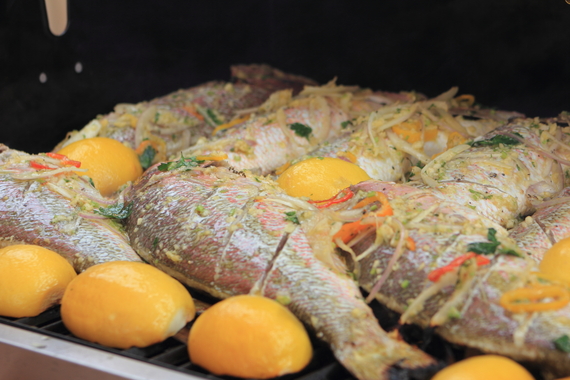As a teacher, I believe that questions, like answers, can be wrong. For example, if we are trying to determine whether all certified organic eggs are from free-range chickens and someone asks "Why are organically raised chickens being fed GMO feed?" Well, that is the wrong (in the sense of being irrelevant) question. As I watched this poignant keynote address by Mark Bittman of The New York Times, my mind raced back to episodes in my own life as they relate to food insecurity.
As Mr. Bittman points out, maybe we are asking the wrong (I say, irrelevant) questions. Hunger is related more to the levels and pervasiveness of poverty than the actual lack of sufficient food. As a child, I didn't always eat what I wanted or my body needed, but I wasn't hungry. There was that one time when we had only so much coconut and eggplant bhaji and I wanted more, but I wasn't hungry. Somewhat ironically, I can recall that on more than one occasion as a graduate student in the United States I was hungry. In every instance, it was because I had no money. My credit cards were charged to the maximum and the next teaching assistant paycheck was a day away. Of course, my self-esteem prevented me from asking for money. It is arrogant to think that anyone can eradicate world hunger or illiteracy for that matter. So, we can all accept that what we are really talking about is how a diverse species can, in an increasingly smaller world, work towards some common goals (maybe just one) achieved by staggeringly varied levels of impact. As a chef at a small restaurant, when I support my local small farms, that is really the best I can do. When a large multinational invites tenders from suppliers who grow or purchase on a massive scale, the impact of their specifications are on a different scale than what I can do. But, we are both gears in the same global food system. As a graph theorist by training, I see some of the networks. My wife is a podiatric surgeon and specializes in diabetic limb salvage. Her concerns are often about the vascular system in the lower extremities. She has to see that network.
Chefs can feel more empowered to think and act thoughtfully as it relates to poverty issues connected to the food system if we are better equipped to see how our practices tie in to the ebb and flow of wealth halfway around the world or sometime in our own backyards.
Well-meaning consumers can do the very same thing. We are all familiar with the adage about teaching a man to fish versus feeding him a fish. History has shown time and again that real change can be as quick as the collective will moving the gears. It feels like we are getting closer to harnessing the power of this collective will on a larger scale each day. I for one am in it for the long haul because I see the positive effects of my best actions on a daily basis. For a larger buy-in, I think we have to minimize our distractions by recognizing the wrong questions.

